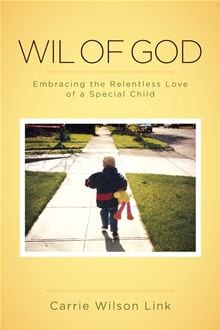I have written about Sex Ed before, both its importance and the fact that I believe we are doing families and students a disservice by calling it that.
Last week the girls’ school held a combined Parent/Student Education night for 7th and 8th graders and their families, led by one of the science teachers and the health/nutrition/fitness teacher. The idea was to talk to the group as a whole to begin with, then break them up into two groups (Students and Parents) to talk for a bit and formulate a list of questions for the other group, and finally bring them all back together to discuss some of the issues. Eve was greatly relieved that Bubba was out of town and we were unable to join the discussion at school but I was, frankly, quite disappointed.
Now, don’t get me wrong. I don’t rub my hands together in gleeful anticipation of talking to my daughters about their sexuality, especially given the fact that they both seem patently uncomfortable with the subject. I was disappointed because, like most things, I believe that the more baby steps we can take, the easier it will get over time. I am not a proponent of the ‘shock’ therapy that one educator I know engages in (among other tactics, she has the girls shout the word, “penis!” at the top of their lungs repeatedly to desensitize them to it). I’m not against it, but it simply isn’t my style.
I was very happy to see an email from one of the instructors a few days after the program with an attached document containing both the student-generated and parent-generated lists of questions from that evening. I forwarded it on to Eve and asked her to pick three questions she wanted to ask me. I would do the same and after dinner we headed out to take a walk. She wasn’t thrilled.
The list of questions ranged from things like “Do you trust me?” and “What kind of boyfriend do you want me to have?” to the distinctly more squirm-worthy ones such as “How old were you when you first had sex?” and “What is molestation?” and “Does it smell when you ‘do it’?” Predictably, Eve chose three pretty tame ones. I let her start, but said we would alternate who asked and who answered.
I tend to give thesis-length answers, but I tried to be as concise as possible so she would remain interested and engaged in the conversation and it was fairly genial. My first two questions were softballs, but the last one was more pointed. Of course, when we were within a block of home, the real meat of the discussion came up and we were able to talk about date rape and how to determine if other people are trustworthy in certain situations. We extended our stroll a bit to accommodate.
As we headed across the deck for the back door, I told her that I’d like us to do this twice a month or so until we’ve exhausted the questions on both lists.
“Mom! Some of those questions….I don’t want to do this all the time! Why do we have to?”
I know she’s embarrassed. I know she thinks she knows more than she does. I know she would probably rather get this information from her friends – despite the fact that they don’t know as much as they think they do, either. But what I’m looking for here is to establish a rapport between us that doesn’t treat her sexuality as uncomfortable or shameful. I don’t want to know details of her consensual experimentations with boys (when she finally has them, hopefully at a developmentally appropriate time) and I have no intention of sharing intimate details of my sex life with her. We aren’t BFFs. But I do want to make sure that if she ever has a question about whether or not it’s the right time for her to start experimenting or how to obtain reliable birth control or if she needs to tell me something difficult that she isn’t proud of, that she feels comfortable coming to me because we have proven ourselves able to talk about it calmly and with respect for each other.
So many of the questions on those lists had more to do with figuring out your own values and understanding your own boundaries and comfort zones than they did with anything else. It is precisely for this reason that I think calling the classes “Sex Ed” unnecessarily creates the illusion that the material is all about intercourse and other intimate sex acts. In my experience, it is so much more about knowing the mechanics of your own body, learning about how hormonal changes affect different aspects of your life, and figuring out how to make good choices that fit within your own personal comfort level. Imagine if everyone were able to access information about how to take care of themselves in every aspect – physically, emotionally, spiritually – and to practice thinking critically about why certain choices were better or worse than others. Don’t we want that for all our children? Spouses? Parents? And just like with any other subject, additional perspectives can only add to understanding which is why it is important to me that my girls are able to discuss the material with me, uncomfortable or not.










